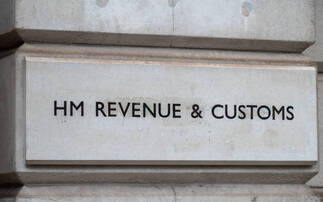There must have been more than a few sweaty brows last week when the HBOS disaster broke wide open in all its gory detail.
In two damning volumes, not only did the Parliamentary Commission on Banking Standards report expose all the dirty dealings among the big cats at the top, but it called quite pointedly and remarkably for the regulator to banish the main three offenders from financial services for good.
There is no doubting that the behaviour of Lord Stevenson, Sir Crosby and Hornby was greedy, reckless, irrationally risky, and so on. But more importantly, what this report has done is brought to the fore the massive failings of the "thoroughly inadequate" action of the former regulator. And even more importantly, it has brought healthy attention to an ongoing desperate need for the apparently revamped twin peaks to revolutionise the City watchdog's approach.
There are barely any pockets of financial services left that have emerged unscathed from the exposure of the financial crisis. It is fair to say confidence and trust in financial services is stuck at an all-time low. And fair or not, the insurance industry has been a stand-out offender in recent years in the eyes of the consumer; born mainly from all the PPI trouble.
A group of sixteen-year-olds were asked, as part of a feature that COVER ran, how they would sum up the insurance industry. A stand-out and supported description was "robbing b******s". For a young person to summarise that way, forming opinion only from absorbing sentiment around them - it says it all really. But credit where it's due, the industry has held up well (remained flat) while other markets have jumped up and down since 2007 like heart monitors.
The good news, in theory at least, is that it could all be set for real change. If all goes to plan the FCA will come to the rescue and take a good firm hold of financial services with its proposed new approach to regulation. And from what we've heard, the new regulator could really force the insurance industry out of its flat-lining box. But although heading for the greater good, the new regime could spell difficult times ahead for the sector.
What we know is that the FCA will be outcomes-focused as opposed to the FSA's scrutiny on compliance and regulation. Interpretation suggests from now on consumer expectation will be of the utmost priority, ahead of what the industry expects or understands to be reasonable.
This translates to: if a consumer has signed a legal document in the form of a policy, but receives what they deem an unfair and unreasonable outcome, the FCA will be more concerned with the latter than the former.
Today FCA chief executive Martin Wheatley noted that suggesting consumers are ultimately responsible for making poor decisions has its limitations.
He will say later today in his first speech since the FCA came into power: "‘Buyer beware' becomes hard to defend when unsophisticated customers are buying seriously complicated financial products, where the risk of failure is far more dangerous than a decision in the supermarket to buy three bananas instead of one."
It's fair to say the insurance industry really only has one option in response; to create products and services that do what they say on the tin. And not just talk about it - the debate has been bouncing back and forth about "simple products" for how long? - but really, truly, honestly do something about it. The Treasury steering group's simple products report serves up a positive start.
But what the industry appears in need of, is a middle ground between this proposed D2C basic proposition and what we have now - arguably an insular sector all wrapped up in complication. The industry needs to be confident, scale back the bells and whistles, streamline the paper-based hassle and do away with complication factors only serving to satisfy insecurities - i.e. to unsustainably steal a slightly larger slice of the market. Ever-lengthening critical illness definitions lists are a prime example of this.
If the FCA shifts the shape of financial services as it proposes to do, it will be important for the industry to ditch groundhog-day attitudes that the regulator is stupid, insane and out-of-touch. It is not a view I would extend wholly and completely. For example, there would be a great deal to be lobbied about should the FCA toy with scrapping commission.
But the big picture is that something has to be done about the trust issues in the insurance sector and across financial services as a whole. Embracing the principles of the regulator's approach and responding pro-actively and genuinely could be a refreshingly positive and decent start.












